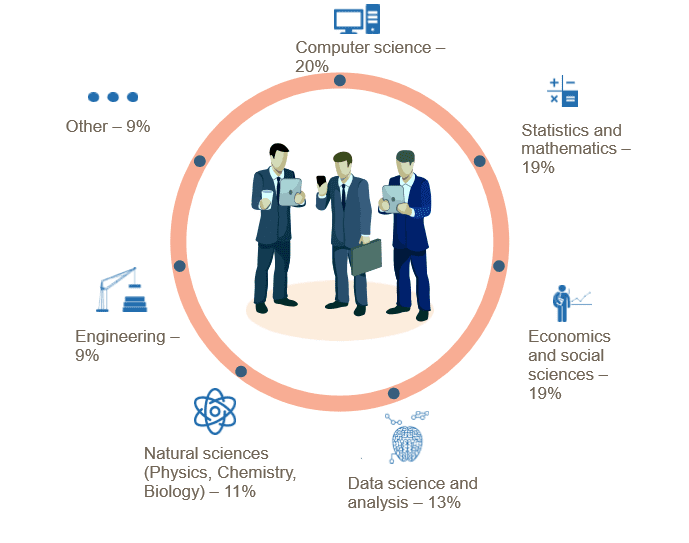“Data is the new oil for business” is the tag line used in the modern world ruled by digitalization. Businesses today depend on data for various reasons. As you are aware data generated every day is counted in quintillion bytes so ideally, traditional methods of data handling are not sufficient to handle this lump-sum data productively.
The primary intent to learn Data Analytics is to figure out a pattern using which assessing customer preferences and tastes may be easier. Big data confines itself as a large sum of data available either in a structured or unstructured format.
Different big data analytics, tools, and techniques are on rising demand for the impact of big data on businesses. Such tools are put to effective use in finding business opportunities and making business decisions.
Competitive advantage for big data analytics aspirant with a tech background
For a person working in a software firm who has some technical knowledge undertaking big data Hadoop course will be extremely beneficial to beat the competition. A report from Forbes suggests that the median salary for a data scientist is $110000. Corporate giants like Cisco, IBM, Oracle, Google, and Microsoft have posted numerous job openings in this field. However, Big Data has widespread use in different sectors of business like Aviation, Pharma, education, Telecom, healthcare, It, Retailing and sports. There are endless opportunities for a person who masters Big Data Analytics Courses in any phase of a career.
Merits of a private training institute
As far as private training institutes are concerned they design a comprehensive structure of big data analytics and provide hands-on training for better knowledge about the concepts. In order to make a career shift, you do not have to invest in sky-rocketing fees of legacy education institutes and their degrees. Various online private institutes offer state of the art classes, online sessions, and programs for your convenience.
Capitalize on the trending big data analytics course by opting for private online institutes who are performing extraordinarily in governing the aspiring students in any phase of their career. Learning and getting trained with professional hands may land you in a dream position.
Skilled and properly trained Big Data Analysts are paid hefty and long-term growth may be possible if you deliver the expected results to the companies.
Big data analytics training encompasses several technologies like:
- Machine learning which co-relates to Artificial intelligence and creates automatic proactive models that analyze bigger problems and brings about a meaningful solution.
- Efficient data management program to be designed by the companies for organizing the data that is constantly flowing in and out of the organization.
- Data mining is a technology which assesses large quantity o data to figure out a pattern which can be further called into meaningful insights for the business.
- In-depth understanding of Hadoop framework which skillfully stores data using commodity hardware and runs its cluster of applications in it.
- In-memory analytics uses system memory to analyze the data thereby saving time and better decision-making.
- Operating with Predictive analysis which uses historical data along with statistical tools and technologies to find a future prospect.
Some of the job titles that one may get into big data are big data engineer, data visualization expert, Hadoop developer, information architect, business managers, software testers an more.
You may be wondering why is big data being a prominent part of successful business, well, let me answer this with the following points:
- On the long run, big data analytics tools like Hadoop and cloud analytics reduce the cost of storing a large sum of data by identifying ways to build a profitable business.
- Big data technique Hadoop, when clubbed with memory analytics, helps in analyzing the information and make decisions immediately based on the research. Thus aids business in a fast and better decision-making process.
- Big data analytics ability to identify the customer needs, has leveraged on the businesses to produce new products that satisfy the customer needs.
To sum up
If your previous job was mundane and not exciting enough, you could probably want to get closer to the way business works through big data analytics. Having knowledge about technical aspects will be an added advantage to take up data analytics as a mid-career jump. Explore more through the Live Chat Support system or can even visit one of our training centers based in – Mumbai, Thane, Pune, Chennai, Hyderabad, Delhi, Gurgaon, and Ahmedabad.






